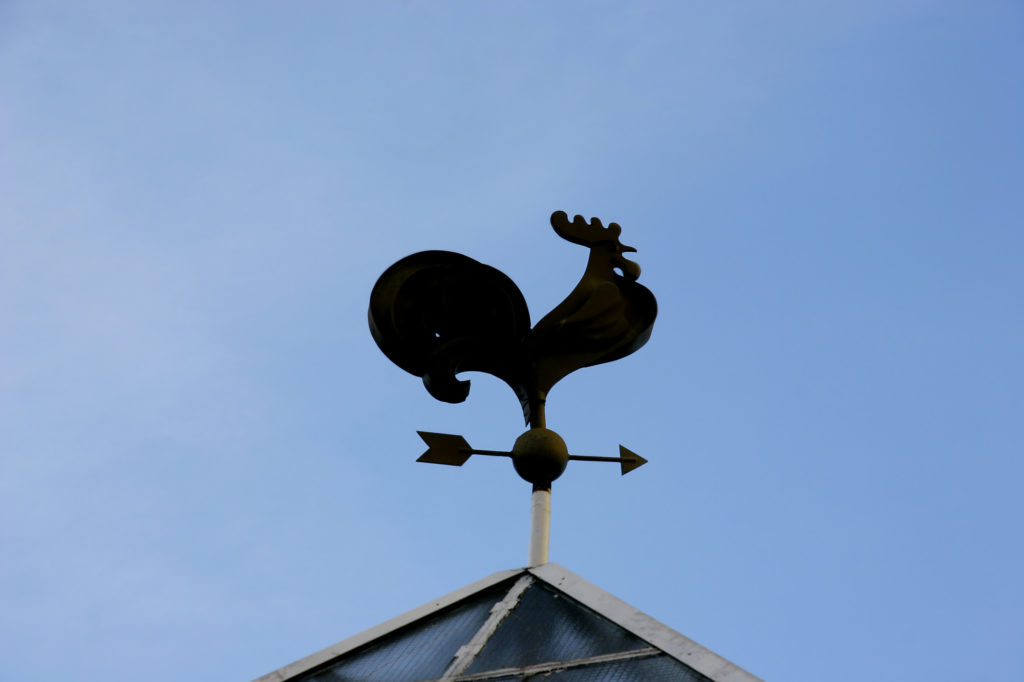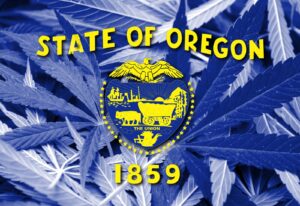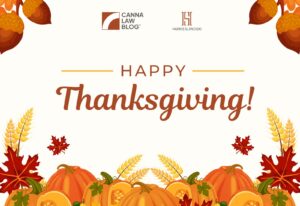The 2023 Oregon legislative session kicked off yesterday. It’s a regular session this year, meaning we’re in for a longer stretch– a 160 day calendar, versus the 35 day affair we see in even-numbered years.
Following November’s elections, the state government also looks quite different than the last few years, from the Governor’s office on down. For this reason, contacts I’ve spoken with in the Oregon Liquor Control Commission (OLCC) and elsewhere are reticent to forecast what may happen with cannabis laws.
For its part, the reinvigorated Oregon Cannabis Association has voiced a general request of “do no harm.” Specifically, it has also voiced opposition to any local tax increase (could be a real fight), thrown support behind social consumption (like every year; not happening) and addressing wasteful and onerous packaging requirements (a good idea).
Below, I summarize the draft bills currently teed up for this new session. I’ll add a similar caveat to last year: a majority of these introduced or enrolled bills will not pass. Certain early offerings will fall aside, or be consolidated into an omnibus or “Christmas tree” bill. We tend to see one of those bigger bills each session, alongside work around the edges on discrete issues.
SB 66 – Increased local marijuana sales taxation authority
This one reads similarly to 2021’s failed and controversial HB 2015 and SB 864. It increases the maximum percentage of tax that a city or county may impose on the sale of marijuana items, from 3% to 10%. The new regime would commence January 1, 2024.
Industry watchers may recall that SB 864 got close a few years back: it passed the Senate before the House Revenue Committee Chair let it drop. I wrote at the time:
One factor there may have been the extra $1B dollars contained in the state May revenue forecast, plus the $2.6BB received from the feds.
It will be interesting to watch what happens with cannabis tax increase proposals in the future, especially if state coffers run light again. A big cut of the cannabis tax revenue will be siphoned off by Measure 110 going forward. I am on record saying that cannabis taxes could go a bit higher, although for the sake of our clients I hope they do not.
Get ready for another pitched battle on local cannabis taxes here in 2023. SB 66 was filed pre-session and it’s going to get some play. Cf. HB 2505 below.
SB 326 – Illegal grow clean-up responsibility
This bill requires the owner of real property used for unlawful marijuana manufacture or production, to clean up waste upon notification from law enforcement. SB 326 is already off to the judiciary committee. It’s a fairly complex bill and a new idea as far as I can tell. I rate the chances of its passing on the low end.
SB 353 – OLCC homework
According to whatever bot summarizes these bills, SB 353 “requires OLCC to study cannabis.” After that, the bill provides that OLCC must submit a report including any legislative recommendations by September 15, 2024. In our experience, OLCC seems pretty busy but I suppose it never hurts for a government agency to learn more about the object of its regulation.
SB 354 – More OLCC homework
Similar deal here, but this one requires OLCC to study “illegal cannabis operations.” And then submit a report on the same schedule.
HB 2015 – OLCC homework
Same bill as SB 353; just the House filing.
HB 2019 – Marijuana tax transfer
This one directs the Department of Revenue (DOR) to transfer “specified amount of moneys… to cities and counties in this state and to the State Police Accounts.” Apparently, someone thinks the police need more money, given the added enforcement directives passed in recent sessions. More interestingly, HB 2019 attempts to re-allocate funds to counties around the state, based upon the “volume of marijuana produced, processed and sold at wholesale and retails” in each.
Political considerations aside, HB 2019 will almost certainly create a “fiscal impact”, which means it is destined for the Ways & Means committee. A lot of bills go there to die; but this one has a puncher’s chance in my view.
HB 2020 – OLCC, know thyself
This one requires OLCC to study “the commission.” And then submit a report on itself, including any legislative recommendations, by September 15, 2024.
HB 2377 – OLCC homework
Same bill as SB 345 and HB 2015. This just needs to be cleaned up.
HB 2505 – Increased local marijuana sales taxation authority
This one is identical to SB 66 above, and pre-filed by the same two legislators. It’s just the House submission.
HB 2515 – Motion detection camera systems; age verification scanners; kids on site
This bill allows licensed cannabis producers, wholesalers, processors and retailers to use motion detection camera systems at a licensed premises. It also allows retail licensees to deploy age verification scanners, instead of performing physical inspections of customer IDs. (The information obtained would be used and retained “only for the purposes of verifying a person’s age.”) Finally, in what is likely a nod to rural producers, HB 2515 contains an unrelated provision allowing children of marijuana business owners onto a licensed premises if a “wall or similar barrier” is in place.
HB 2516 – Direct sales from small farms
This one would allow for certain licensed producers to sell directly to customers, bypassing retailer licensees altogether. The producers would have to qualify as “small-scale” licensees as later defined by OLCC. Interesting!
HB 2516 also contains a provision which allows licensed wholesalers to sell or transfer cannabis to licensed retailers at trade shows.
HB 2517 – Hiring agreement exemption
A niche bill. It exempts cannabis business from “first source hiring agreement requirements in enterprise zones.”
HB 3048 – Law enforcement grants
This bill directs the Oregon Criminal Justice Commission to award grants to the Department of State Police, cities, counties and community-based organizations, in order to chase unlawful cannabis production and distribution. More focus on bad actors here; less on helping industry directly.
HB 2931 – OLCC homework
Same bill as SB 345 and HB 2015 and HB 2377. This just needs to be cleaned up.
HB 2932 – OLCC homework
Same bill as SB 345 and HB 2015 and HB 2377 and HB 2931. Again, clean-up needed.
HB 2949 – Local hemp regulations
This bill gives regulatory carte blanche, it seems, to cities and counties that wish to adopt “reasonable regulations” on most anything related to hemp production. For example, localities could limit “the manner in which a grower could produce industrial hemp.” A city or county could also limit where the hemp could be grown; when the site could operate; etc.
All of this seems unnecessary, especially in the context of a beaten-down industry where Oregon has a real leadership opportunity. HB 2949 is similar in sentiment to the regrettable HB 1564, which passed last session. That law allows county commissions to request that the Oregon Department of Agriculture deny local hemp license applications, if those counties declare a local state of emergency.
HB 3049 – Hemp product labeling for human or animal consumption
This one directs OLCC to establish and annual registration program and labeling requirements for any industrial hemp commodity or product that contains cannabinoids, and is intended for human or animal consumption. Some of the requirements would include, e.g.: name and type of product; manufacturer identification; ingredients; net weight; serving size; potency. Seems like a good idea if implemented correctly.
What happens next
Stay tuned to the Canna Law Blog for updates on all of this. We plan to report any marquee developments during this legislative session. We’ll also write our annual “wrap up” summary sometime after the session concludes on June 25.
In the meantime, to catch up on recent Oregon cannabis developments and the general state of affairs, check out the following recent posts:
*Update (01/25/23)
After publication of this post, I became aware of SB 302, which was introduced at the start of this session but did not contain the words “cannabis” or “marijuana” in its summary. This is another law enforcement bill which provides that OLCC may not issue a marijuana producer license unless the property owner’s address and identity are disclosed. It applies the same standards to the Oregon Health Authority in the psilocybin licensing context. On our firm’s psychedelic blog, I wrote in my analysis of the bill:
Are applicants and property owners going to like this bill? No; not at all. Landlords won’t want to submit a notarized document to the government, implicating (or further implicating) themselves in aiding and abetting violations of the federal Controlled Substances Act. And that gets us to the origin of this bill: it was requested by none other than Billy Williams, the former U.S. Attorney for the District of Oregon. Williams kept a keen eye on Oregon’s marijuana program during his tenure in office, convening awkward summits, expressing “significant concerns” about diversion, and ultimately distinguishing himself as the only U.S. Attorney to author a “mini Cole memo.”
All of that ended up being more bark than bite, but Williams’ position had a strong influence on the nature and tenor of legislative activity around Oregon cannabis, which continues to this day. In fact, the legislature has consistently allocated funds toward law enforcement for several years running, in attempts to curb “unlicensed” cannabis activity and its tendrils. Criminality is what SB 302 is probably about: specifically, unlicensed psilocybin and cannabis distribution, and interstate diversion; and perhaps holding landlords accountable for environmental issues (chemical seepage; water diversion) related to their properties. Hopefully the legislature has the good sense to shut this bill down.
Need Help With Oregon Cannabis Law?
























